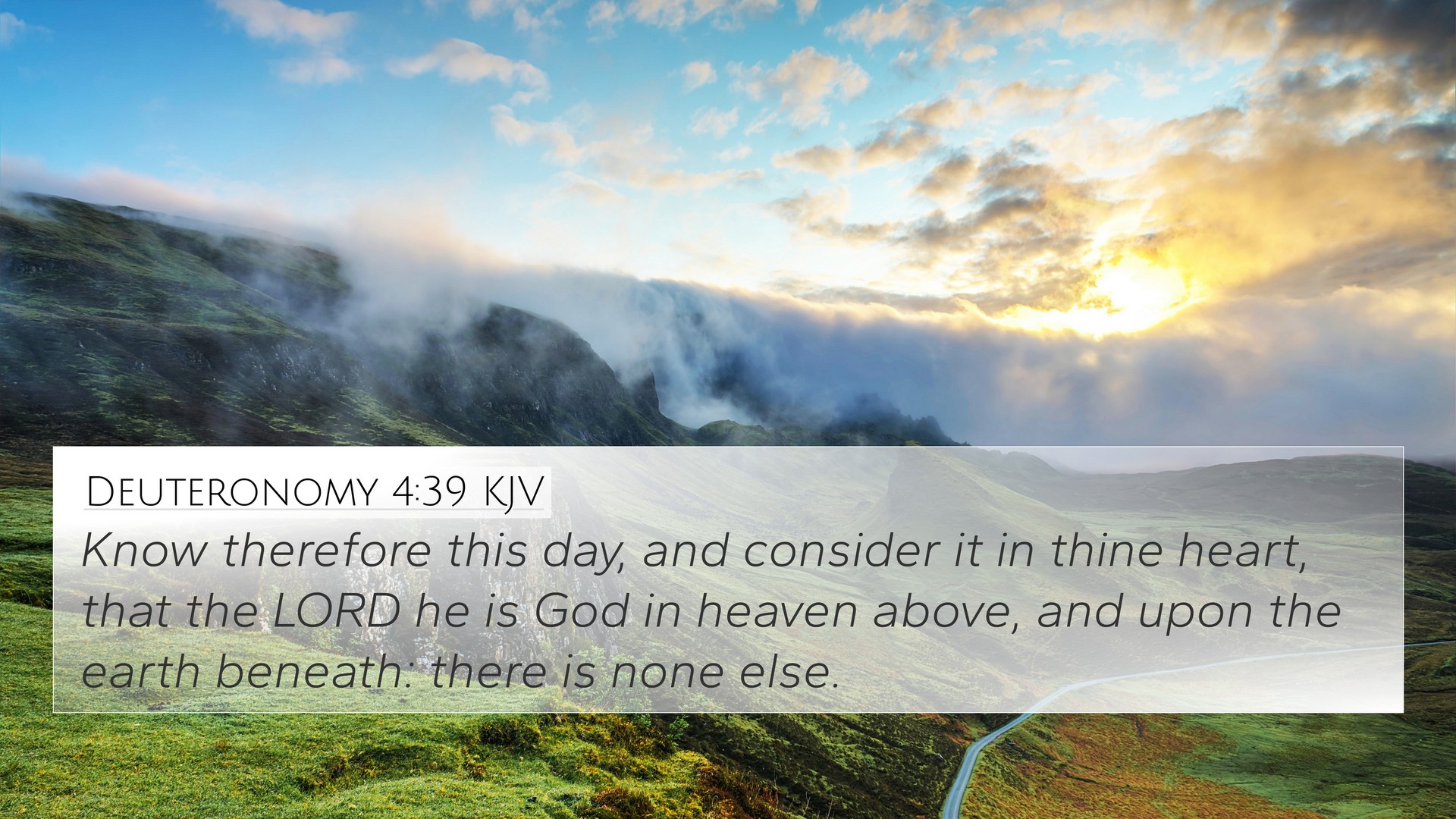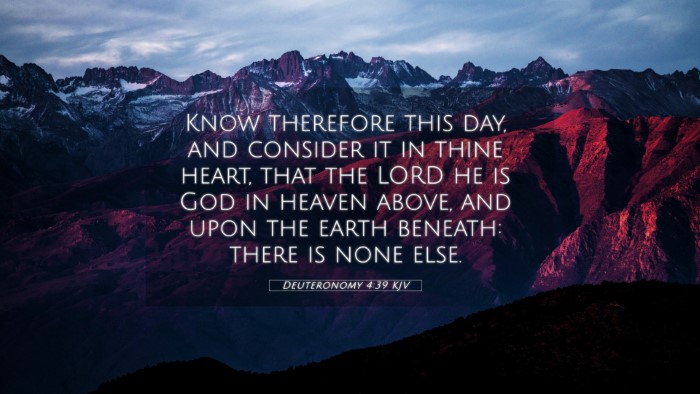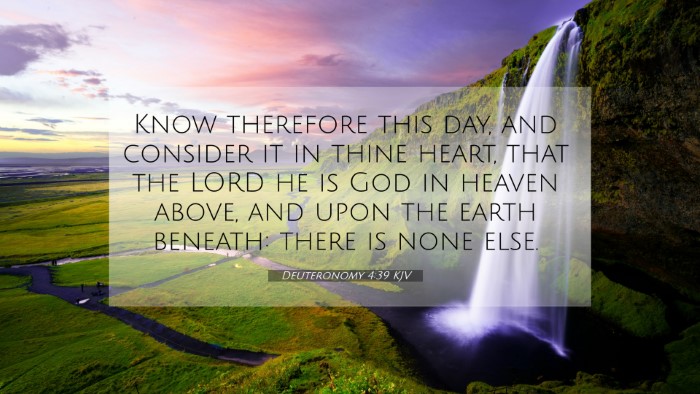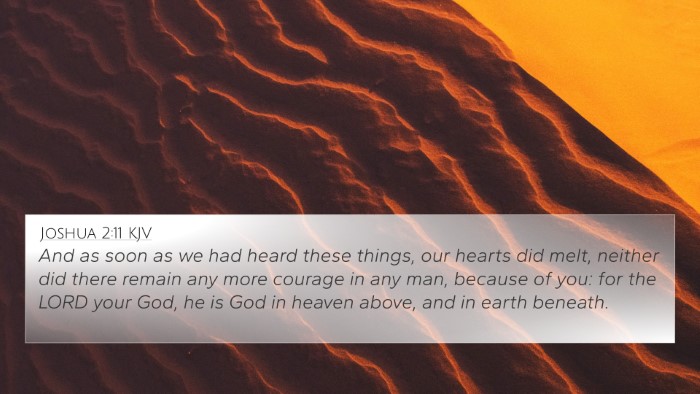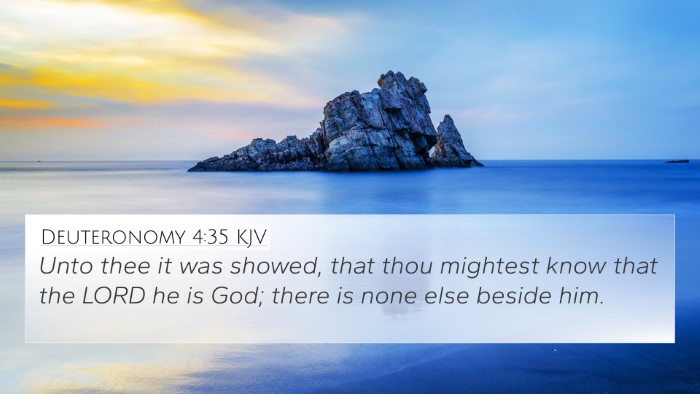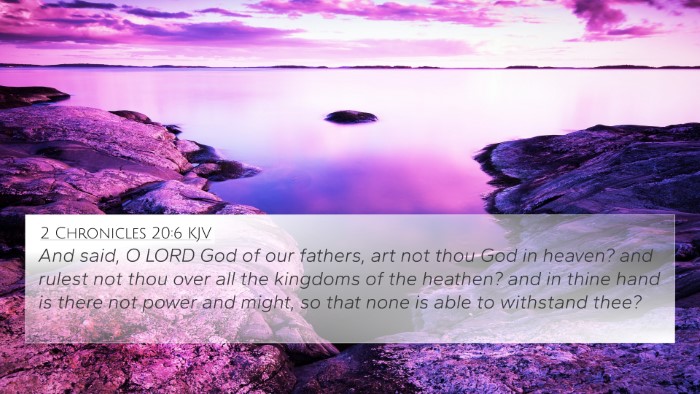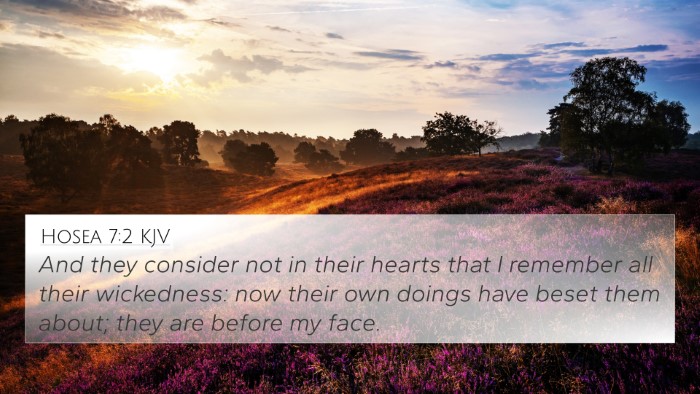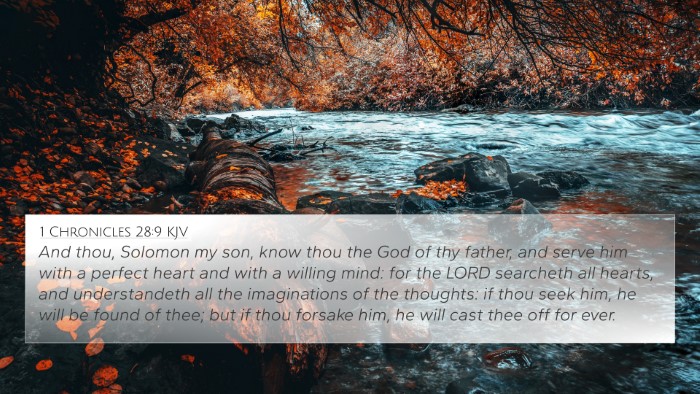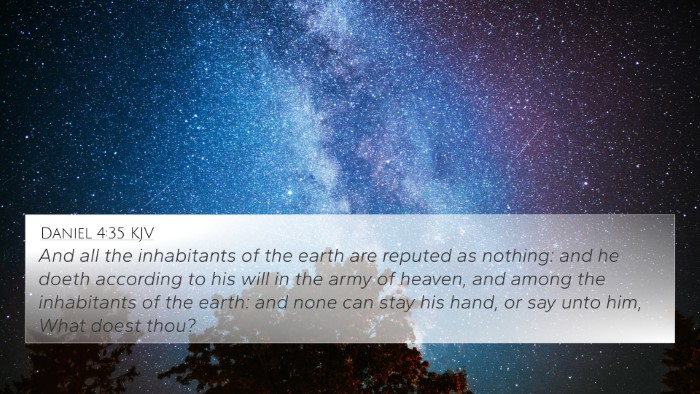Understanding Deuteronomy 4:39
Deuteronomy 4:39 states: "Know therefore this day, and consider it in thine heart, that the Lord he is God in heaven above, and upon the earth beneath: there is none else." This verse encapsulates the essence of monotheism central to Israelite faith.
Meaning and Significance
This verse serves as a reminder to the Israelites of the unique relationship they have with God, highlighting His sovereignty over both heaven and earth. The call to "know" and "consider" suggests a depth of understanding and acknowledgment that goes beyond mere recognition.
Insights from Commentaries
- Matthew Henry: Henry emphasizes that this verse calls for an acknowledgment of God's sole authority. By commanding the Israelites to know and consider this truth, God invites them to reflect upon His nature and what it means for their lives.
- Albert Barnes: Barnes notes that this verse is part of a larger exhortation to remain faithful to God. He highlights the implication of God's exclusivity as a foundational aspect of worship, positioning Him as the only deity worthy of reverence.
- Adam Clarke: Clarke interprets the verse as a declaration of God's omnipotence, urging believers to recognize His dominion over all creation. He further explains that acknowledging God's position influences the believer’s moral and spiritual responsibilities.
Connecting with Other Scriptures
Deuteronomy 4:39 provides a rich opportunity for cross-referencing with other Bible verses, enhancing understanding through thematic connections. Several notable verses include:
- Isaiah 45:5: "I am the Lord, and there is no other; apart from me there is no God." This verse parallels the theme of God’s exclusivity as highlighted in Deuteronomy 4:39.
- 1 Kings 8:60: "So that all the peoples of the earth may know that the Lord is God and that there is no other." This echoes the call to acknowledge God's singularity.
- Romans 10:9: "If you declare with your mouth, 'Jesus is Lord,' and believe in your heart that God raised him from the dead, you will be saved." The New Testament affirmation showcases the continuity of understanding God's sole authority.
- Psalms 86:10: "For you are great and do marvelous deeds; you alone are God." This psalm correlates with the acknowledgment of God's unique position.
- Revelation 4:11: "You are worthy, our Lord and God, to receive glory and honor and power, for you created all things, and by your will they were created and have their being." A call to worship the one true God, reaffirming the sentiment of exclusivity.
- John 17:3: "Now this is eternal life: that they know you, the only true God, and Jesus Christ, whom you have sent." This further develops the theme of knowing God as the foundation of faith.
- Malachi 2:10: "Have we not all one Father? Has not one God created us?" This reinforces the concept of divine uniqueness in the creation narrative.
Thematic Connections
Deuteronomy 4:39 can be linked to broader themes within Scripture, such as:
- Monotheism: The essence of God's singular existence ties into many verses, forming a core theme in both the Old and New Testaments.
- Covenant Relationship: The Israelite identity is built on their covenant with God, expanding the understanding seen in this verse across various scriptures.
- God's Sovereignty: Acknowledging God's dominion is a thread woven throughout both prophetic literature and New Testament teachings.
- Knowledge of God: The explicit call to know God aligns with numerous passages encouraging believers to deepen their understanding and relationship with Him.
Practical Applications
Believers today can take several practical steps based on the insights from Deuteronomy 4:39:
- Deepening Knowledge: Engage in studies that enhance understanding of God's nature, utilizing tools for Bible cross-referencing such as concordances and cross-reference guides.
- Worship Practices: Implementing knowledge of God’s unique position in personal and communal worship settings.
- Sharing Insights: Use comparative Bible verse analysis to share revelations with others, fostering an environment of inter-Biblical dialogue.
Conclusion
In summary, Deuteronomy 4:39 is a profound declaration of God's uniqueness and authority. By engaging with this verse through cross-referencing and thematic exploration, believers can enrich their understanding of Scripture and strengthen their faith journey.
